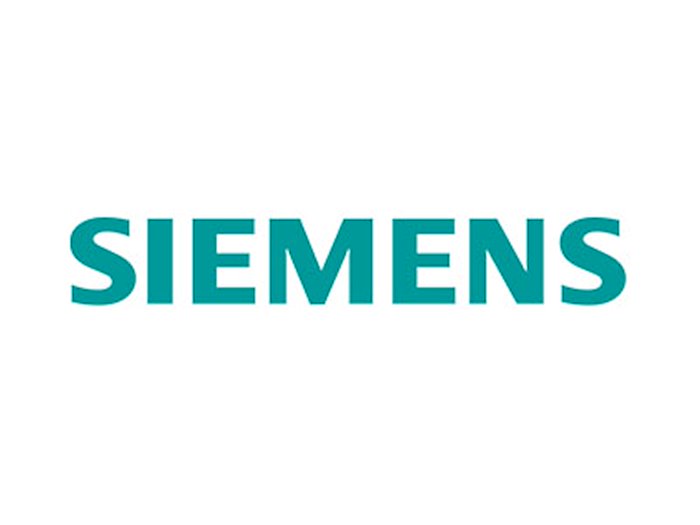
Matthias Rebellius, Member of the Managing Board of Siemens AG and CEO of Smart Infrastructure, says: “Infrastructure change is accelerating and putting pressure on systems worldwide – from energy to mobility and buildings. The further development of global infrastructures is of utmost importance to enable progress in the areas of decarbonization, resource efficiency and social well-being. Technology and digitalization are key to making this transformation smart and sustainable. At Siemens Smart Infrastructure, we have already taken the first steps and developed innovative products, systems, solutions and services to support the current and future challenges of urbanization and climate change.”
The aim of the study was to assess the current state of infrastructure change, including developments in the systems, services, buildings and structures required for industries, cities and countries to function effectively. The data was collected through a global survey of 1,400 executives from 22 countries and in-depth interviews with managers and experts. The figures and statements here focus on the DACH region with 100 respondents.
The study is based on the conviction that the infrastructure transition must not only lead to decarbonization, but should also have positive effects beyond this. The report also assumes that better integration of infrastructures is essential to bring about change. Finally, urgent and urgent action must be taken to avert catastrophic consequences – both globally and locally.
Change is not happening fast and agile enough at regional (country) level in the long term
Despite the acceleration of infrastructure change, greater progress is needed at regional (country) level to reduce CO2 emissions quickly enough. The energy sector is a particular priority, as almost three quarters of global greenhouse gas emissions come from the production, use and transportation of energy. According to McKinsey², decarbonizing the world’s energy systems would require around USD 275 trillion to bring about profound changes in electricity generation, distribution and use. Regulatory authorities in the DACH region are seen as having the greatest responsibility (30% of respondents), followed by the actual owners of the assets, the investors/shareholders (24%). Companies and citizens (each with 15 percent) and politicians (14 percent) also have a certain responsibility according to the respondents, but this is significantly lower.
Decarbonization is a competitive advantage for cities
Cities play an important role in combating climate change. According to the survey, over half of respondents (61 percent) believe that a head start in decarbonization is a competitive advantage for a city. Decarbonizing mobility, including public transport networks and commercial and private vehicles, is a high priority when it comes to reducing emissions. 55 percent of respondents believe that their cities have made progress in promoting the use of public transportation. According to the study, 57 percent also believe that digitalization will help make the public transport network less fragmented. In terms of an actionable mobility policy, 50 percent of executives believe that electric cars should be made cheaper than combustion engine vehicles through subsidies or tax credits. The biggest obstacle to the widespread introduction of electric vehicles is currently the lack of charging infrastructure.
62 percent of companies expect to meet their decarbonization targets this year
Companies are under pressure to decarbonize their business models, facilities and infrastructure. According to the report, just over half (52 percent) of companies are already pursuing targets for Scope 1 and Scope 2 emissions, but only 37 percent for Scope 3. 62% of respondents believe it is likely that they will meet their targets for the coming year, but only 37% expect the targets to be met by 2030. The report suggests that there is a correlation between confidence in economic growth and meeting decarbonization targets.
Reducing energy costs and consumption
Another important area for companies is energy. Over half of those surveyed (51 percent) stated that it is of key relevance that energy is affordable. 58 percent of respondents stated that their facilities and buildings have improved in terms of energy efficiency. However, when it comes to electrification and/or decarbonization, only 34 percent of respondents rated their company as “mature” or “advanced” when it comes to facilities and 38 percent when it comes to heating and cooling buildings. However, there is hope that companies can use innovative solutions to improve the performance and sustainability of their buildings without extensive new construction, but this process needs to move faster.
Technology and digitalization to accelerate infrastructure transformation
According to the report, technology and digitalization are the most important levers for successful infrastructure transformation. This is likely to have the greatest impact on decarbonization, resource efficiency and well-being over the next three years. Among the key technologies that have a very positive impact, respondents in the DACH region particularly see technologies for energy storage (48%, in terms of decarbonization), AI-based forecasting and automation (49%, for resource efficiency) and remote sensing, geospatial and monitoring for information (46%, for social wellbeing). More than half of respondents believe that digitalization has very high potential to support progress in energy efficiency (53 percent), productivity (58 percent) and decarbonization (59 percent) in their business.
Matthias Rebellius concluded: “Overall, the report confirms that while citizens, businesses and governments do not always agree on the key requirements and objectives of the infrastructure transition, action is needed now to mitigate the effects of climate change. Collaboration and digitalization in energy, mobility and buildings will be critical to pave the way to a decarbonized world.”
[1] In this report, the term “infrastructure” refers to all systems (e.g. energy systems), services (e.g. healthcare), buildings (e.g. factories or high-rise office buildings) and structures (e.g. railways) that are necessary for the effective use of energy. railroads) required for the effective functioning of industries, cities and countries.
[2]
https://www.mckinsey.com/featured-insights/sustainable-inclusive-growth/chart-of-the-day/the-cost-will-not-be-net-zero
For more information on the global report, click here:
https://www.siemens.com/de/de/unternehmen/insights/infrastructure-transition-monitor-2023.html
– – – – –
Further links
👉 www.siemens.com
Photo: Siemens




